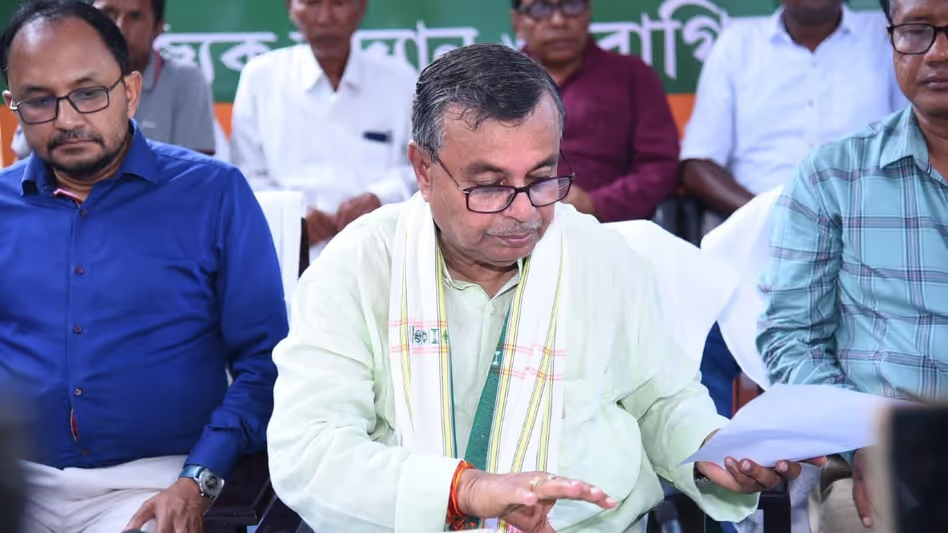The Viksit Krishi Sankalp Abhiyan has made history in Tripura by reaching 195,263 farmers, with 66,899 of them being women farmers, surpassing the initial target of 1.72 lakh farmers. This campaign, which ran from May 29 to June 12, has been a major success in the state.
Speaking at a press conference, Tripura Agriculture and Farmers’ Welfare Minister Ratan Lal Nath highlighted the significance of this achievement. He mentioned that Tripura has reached the second-highest number of farmers among the North Eastern states, after Assam, through this campaign. This accomplishment is unprecedented in the state’s history.
Minister Nath emphasized the vision of Prime Minister Narendra Modi to modernize and stabilize the agricultural sector in India. He stressed the importance of agriculture in the country’s economy and the need for its development for overall progress. The government is working towards the policy of ‘One Country, One Agriculture, One Idea’ to establish a Viksit Bharat.
The campaign involved 16,000 agricultural scientists and officials from 2,170 agricultural and allied sectors across the country. The main objective was to bring modern agricultural technology to 1.5 crore farmers in 700 districts, ensuring food and nutrition security for 1.45 crore people, increasing farmers’ income, and conserving natural resources. The campaign focused on plans like increasing agricultural production, reducing costs, ensuring fair pricing, providing compensation for natural disasters, promoting crop diversification, and encouraging natural and organic farming.
In Tripura, three expert teams were formed in each district, conducting an average of 108 meetings per district during the campaign. A total of 956 meetings were held across 8 districts, engaging with 195,263 farmers, including 66,899 women. The interactions covered various topics such as development schemes, modern farming practices, animal husbandry, fish farming, and soil health testing.
Minister Nath mentioned that valuable suggestions from farmers were recorded during these interactions. The insights gathered will be used to draft future plans for the state’s agricultural development. He also discussed upcoming initiatives such as the Sweet Revolution, focusing on self-sufficiency in honey production by promoting beekeeping.
The Minister highlighted the potential impact of the campaign, stating that if the average yield per hectare increases by 500 kg through science-based farming, Tripura’s food grain production could rise by 1 lakh metric tons this year. This would be a significant step towards achieving the core objectives of the Viksit Krishi Sankalp Abhiyan.

